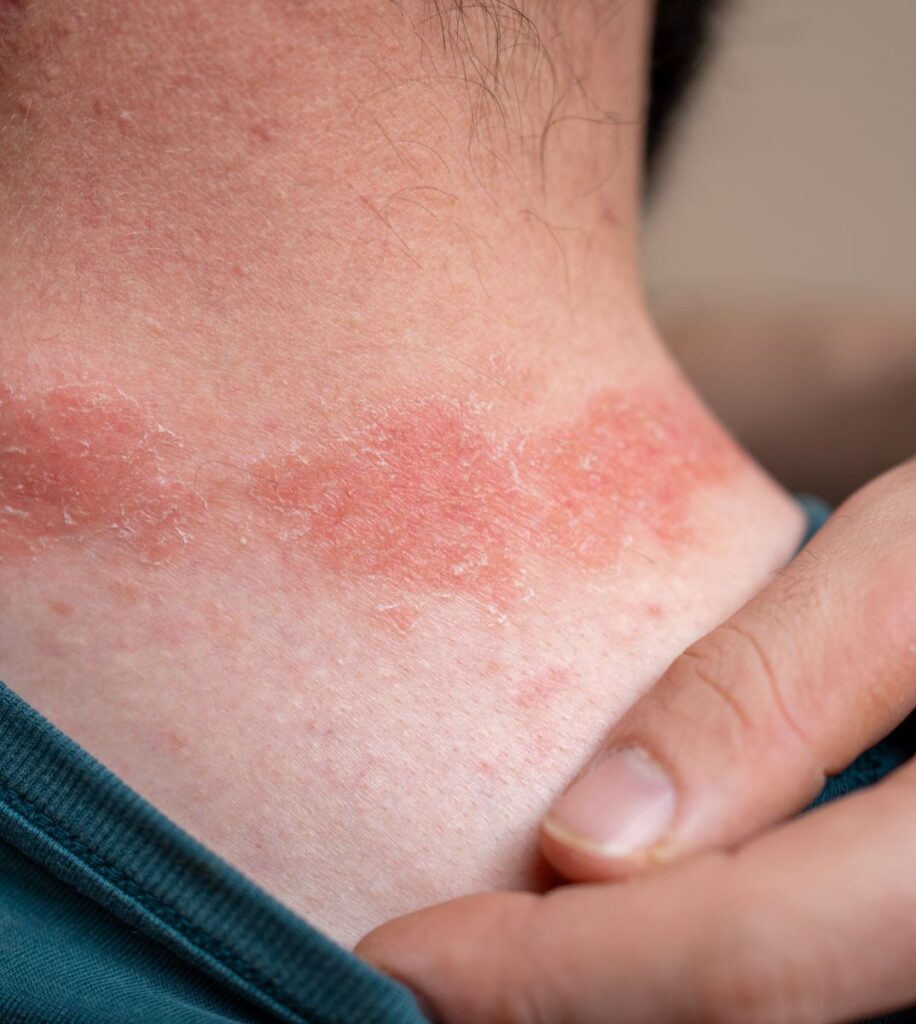
Dry, itchy, and inflamed skin can be a frustrating and uncomfortable experience. This condition, often referred to as dermatitis, can occur for various reasons and affects people of all ages. The skin becomes dry when it loses its natural oils, leading to a compromised barrier that allows moisture to escape. This can result in itching and inflammation as the skin tries to repair itself. Understanding the underlying causes and symptoms is crucial in finding effective relief and preventing future occurrences.
Common Causes of Skin Irritation
Several factors can contribute to dry, itchy, and inflamed skin. Environmental factors such as cold weather, low humidity, and exposure to harsh soaps or chemicals can strip the skin of its natural oils. Allergies to certain foods, fabrics, or skincare products can also trigger irritation. Skin conditions like eczema, psoriasis, or contact dermatitis are common culprits. Additionally, stress and dehydration can exacerbate skin issues, making it essential to identify and address the root cause of your symptoms.
Immediate Steps to Soothe Your Skin
When dealing with irritated skin, the first step is to stop any activities or exposure to substances that may be causing the irritation. Gently cleanse the affected area with lukewarm water and a mild, fragrance-free cleanser. Avoid hot showers or baths, as they can further dry out the skin. Pat your skin dry with a soft towel and apply a thick, fragrance-free moisturizer while the skin is still damp to lock in moisture. Wearing loose, breathable clothing can also help reduce irritation.
Over-the-Counter Remedies for Relief
There are several over-the-counter products that can provide relief for dry, itchy, and inflamed skin. Look for moisturizers containing ingredients like ceramides, hyaluronic acid, or glycerin, which help restore the skin’s barrier. Topical hydrocortisone creams can reduce inflammation and itching. Antihistamines, such as diphenhydramine, can help alleviate itching, especially if it’s caused by an allergic reaction. Always follow the instructions on the packaging and consult a pharmacist if you have any questions.
Home Remedies and Natural Solutions
Natural remedies can be effective in soothing irritated skin. Oatmeal baths are known for their anti-inflammatory properties and can provide relief from itching. Aloe vera gel, applied directly to the skin, can soothe and hydrate. Coconut oil is another natural moisturizer that can help repair the skin barrier. Honey, with its antibacterial and moisturizing properties, can be applied as a mask to calm inflammation. Always do a patch test before using any natural remedy to ensure you don’t have an adverse reaction.
Lifestyle Changes to Prevent Future Flare-Ups
Preventing future skin irritation involves making some lifestyle adjustments. Stay hydrated by drinking plenty of water throughout the day. Use a humidifier in your home during dry months to maintain moisture in the air. Choose gentle, fragrance-free skincare and laundry products to minimize irritation. Protect your skin from harsh weather by wearing appropriate clothing and using sunscreen. Managing stress through relaxation techniques like yoga or meditation can also help maintain healthy skin.
When to Seek Professional Medical Advice
While many cases of dry, itchy, and inflamed skin can be managed at home, it’s important to seek medical advice if your symptoms persist or worsen. If you experience severe itching, blistering, or oozing, or if the affected area covers a large portion of your body, consult a healthcare professional. Additionally, if over-the-counter treatments and home remedies do not provide relief, a dermatologist can help identify the underlying cause and recommend appropriate treatments.
Conclusion: Managing Skin Irritation at Home
Dealing with dry, itchy, and inflamed skin can be challenging, but with the right approach, you can find relief and prevent future flare-ups. By understanding the causes of your skin irritation and taking immediate steps to soothe your skin, you can manage your symptoms effectively. Incorporating over-the-counter remedies, natural solutions, and lifestyle changes into your routine can further support skin health. Remember to seek professional medical advice when necessary to ensure you receive the best care for your skin.